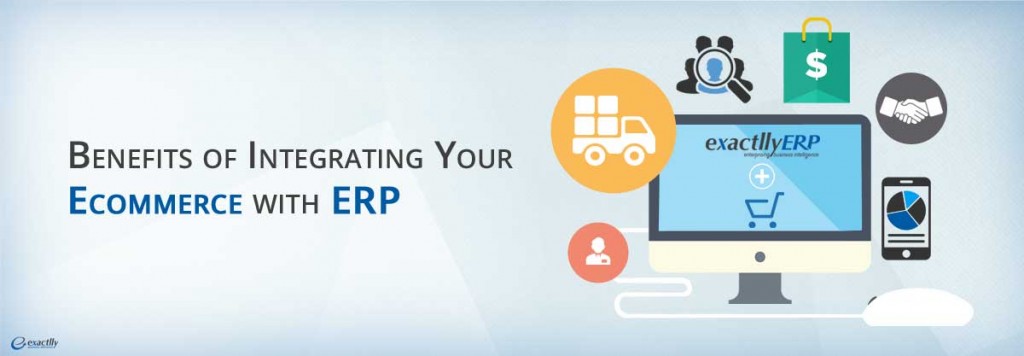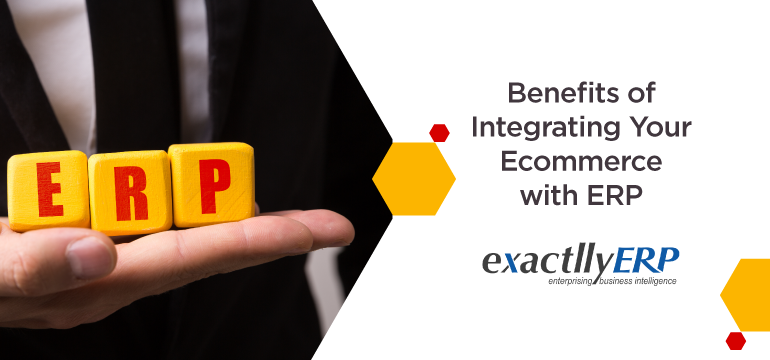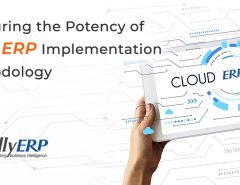Ecommerce
 Selling your products online is a great way to boost your sales at minimum operational cost. The benefits of online selling can further be multiplied if you integrate your ecommerce website with the ERP system. It brings everything under one roof and you get rid of separate unit required for managing and analyzing data being accumulated on your ecommerce website. If you are still planning to implement an ERP system, make sure you check its integration capabilities with your ecommerce website.
Selling your products online is a great way to boost your sales at minimum operational cost. The benefits of online selling can further be multiplied if you integrate your ecommerce website with the ERP system. It brings everything under one roof and you get rid of separate unit required for managing and analyzing data being accumulated on your ecommerce website. If you are still planning to implement an ERP system, make sure you check its integration capabilities with your ecommerce website.
Following are the fundamental benefits you generate through integration:
- Empower your customers
Integration with ERP allows real-time updates of stock level on your website. Many customers tend to go for products which are fast running out of stock. The remaining stock level for different products on your website will help them to take a purchase decision quickly. They can track the order status and shipping details in sync with ERP update. - Better sales management
Sales from ecommerce website will directly reflect in company accounts. Ecommerce sales data can automatically merge with sales data from other mediums. The overall sales transactions will be visible on the company system in real-time. Sales report can be generated instantly and sales target can be set realistically. - Generate financial reports
Since the sales information is always updated, the company executives can anytime generate financial reports of the company. Balance sheet, profit & loss statement, cash inflow and outflow etc can all be generated without any extra effort. Furthermore, information from online sales can be used to draw bar diagrams, pie charts and amalgamated with sales data from other sources connected with ERP. - Reduce burden on human resources
Since every bit of information related to order, sales and inventory is clearly visible, it enables fast order fulfillment. There is automated data filling in the ERP system as soon as customers enter information on the website and there is no manual data input required. This reduces redundancies and data errors in customer, sales and order information. Employees generate higher work satisfaction and you save a significant cost of labor through automation. - Better inventory management
As a merchant, you get greater visibility into your inventory levels. You can clearly figure out what SKUs (Stock Keeping Units) are selling more through your website. Integrating your website with ERP system will help you to have a real-time update of inventory. ERP user in your company can easily plan inventory purchase and reduce the cost of inventory. - Customer relationship management improves
Ecommerce is not only for sales but to identify future customers. With information right in your hand, you get leads that enable you to do target marketing. Integration improves overall purchase experience of the customer on your website. You can offer better products as all information is visible to marketing dept. Take product feedback on website and it is visible to quality testing and R&D department. You can track customer purchase behavior and explore opportunities for increasing your business. You don’t separate tools for collecting and analyzing your website once you integrate it with your existing ERP system.
Last but not the least, have better control over business
With integration of ecommerce and ERP, all aspects pertaining to sales, order, inventory, customer management are included under one system. There is one solid data base which contains all information about your company. Thus, you have a better control over your business. The response time of your company tremendously increases.





Leave a Reply